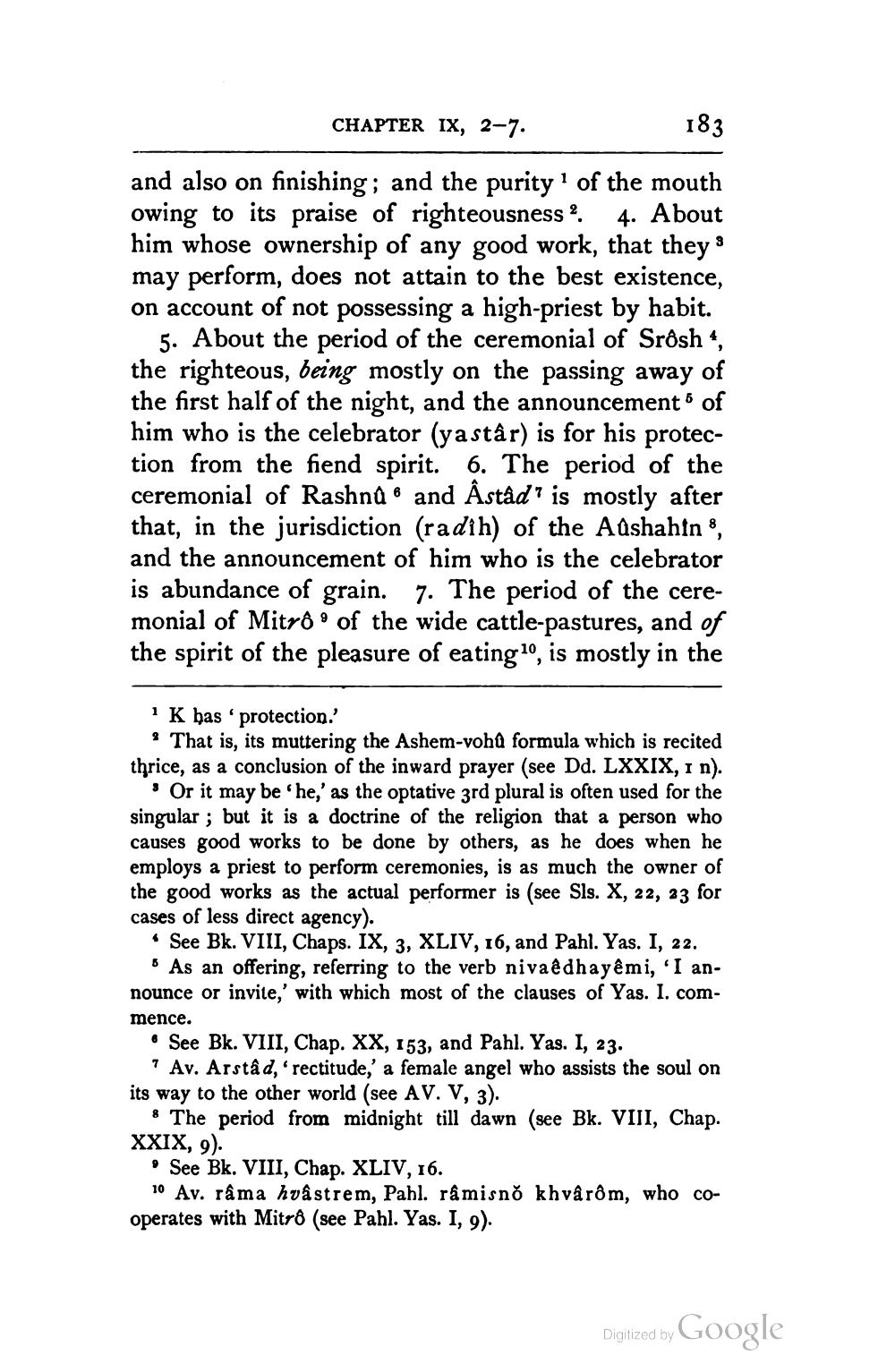________________
CHAPTER IX, 2–7.
183
and also on finishing; and the purity of the mouth owing to its praise of righteousness ? 4. About him whose ownership of any good work, that they : may perform, does not attain to the best existence, on account of not possessing a high-priest by habit.
5. About the period of the ceremonial of Srôsh 4, the righteous, being mostly on the passing away of the first half of the night, and the announcement of him who is the celebrator (ya stâr) is for his protection from the fiend spirit. 6. The period of the ceremonial of Rashna 8 and Astâd" is mostly after that, in the jurisdiction (radih) of the Adshahin 8, and the announcement of him who is the celebrator is abundance of grain. 7. The period of the ceremonial of Mitro o of the wide cattle-pastures, and of the spirit of the pleasure of eating 10, is mostly in the
i Khas 'protection.'
? That is, its muttering the Ashem-vohů formula which is recited thrice, as a conclusion of the inward prayer (see Dd. LXXIX, In).
Or it may be 'he,' as the optative 3rd plural is often used for the singular ; but it is a doctrine of the religion that a person who causes good works to be done by others, as he does when he employs a priest to perform ceremonies, is as much the owner of the good works as the actual performer is (see Sls. X, 22, 23 for cases of less direct agency).
* See Bk. VIII, Chaps. IX, 3, XLIV, 16, and Pahl. Yas. I, 22.
• As an offering, referring to the verb nivae dha yêmi, 'I announce or invite,' with which most of the clauses of Yas. I. commence.
See Bk. VIII, Chap. XX, 153, and Pahl. Yas. I, 23. ? Av. Arstâd, rectitude,' a female angel who assists the soul on its way to the other world (see AV. V, 3).
8 The period from midnight till dawn (see Bk. VIII, Chap. XXIX, 9).
See Bk. VIII, Chap. XLIV, 16. 10 Av. râm hoả strem, Pahl. ramisnỏ khvarôm, who COoperates with Mitro (see Pahl. Yas. I, 9).
Digitized by Google




